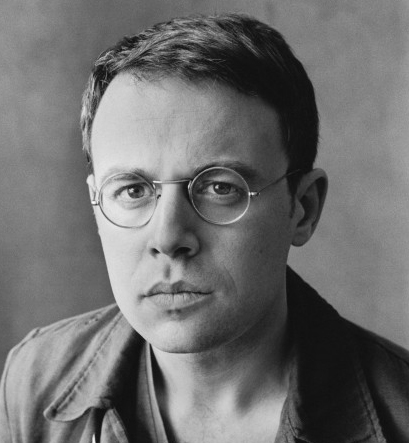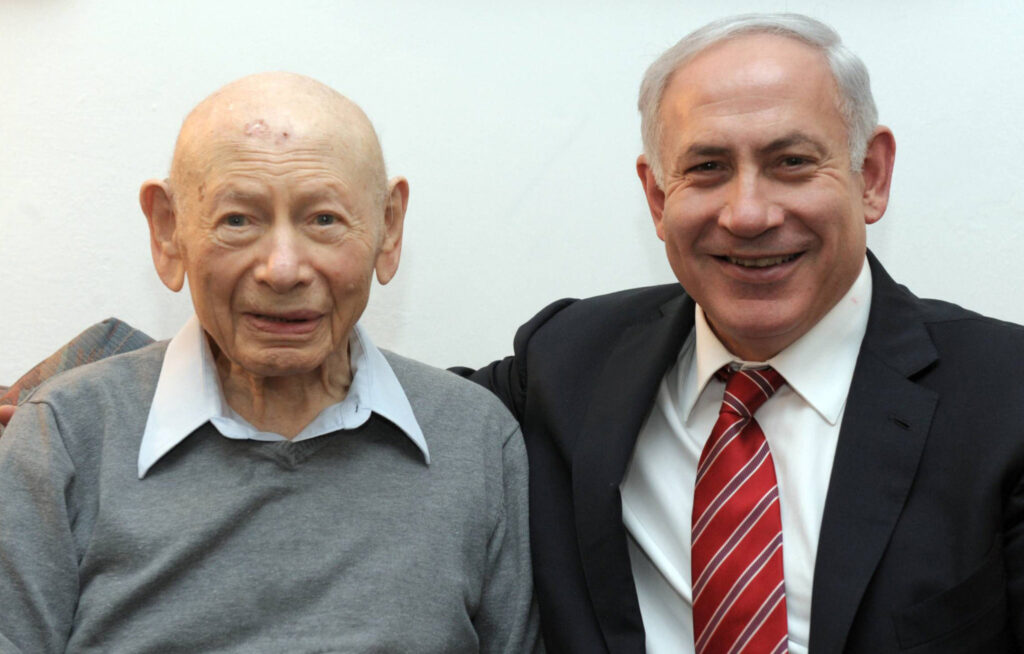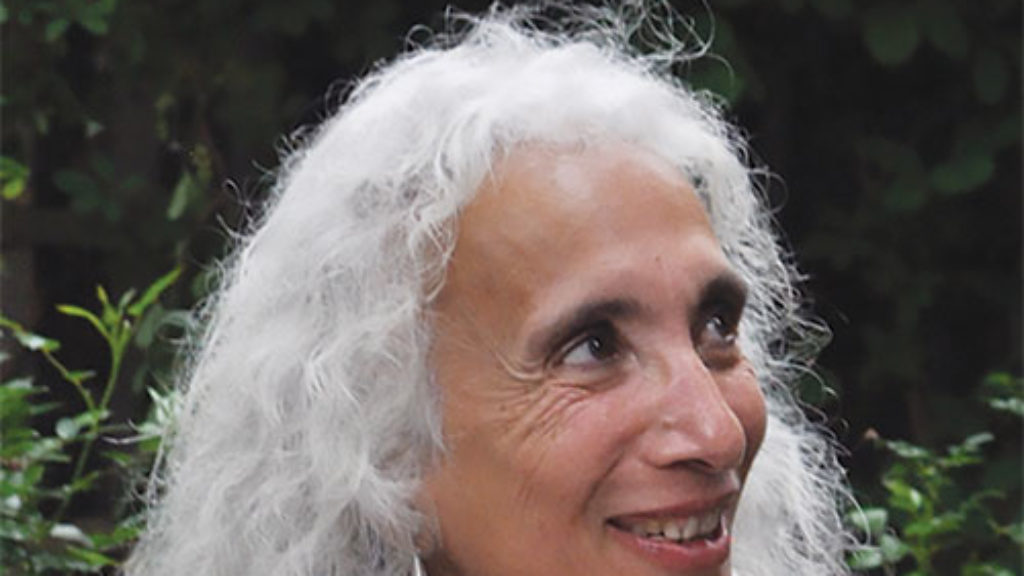Fictional Revisionism
Editor’s Note: This review led to a spirited exchange between Joshua Cohen and Allan Arkush. You can read it here.
The first time I picked up Joshua Cohen’s new novel, The Netanyahus: An Account of a Minor and Ultimately Even Negligible Episode in the History of a Very Famous Family, I put it down when I reached page eighty-four. I just couldn’t finish the fictional Hebrew University lecturer Peretz Levavi’s poison-pen reference letter to the search committee of the Corbin College History Department. Levavi’s letter sizes up (or, rather, down) the medieval historian and Zionist activist Benzion Netanyahu, whose application for a position at Corbin College (a stand-in for Cornell, where Netanyahu did indeed end up teaching) is the central episode of this slight novel. In the course of the letter, Cohen’s Levavi writes a capsule history of Zionism that is so blatant a distortion that I just gave up.
A week or two later, however, I read Taffy Brodesser-Akner’s exuberantly laudatory review of Cohen’s book in the New York Times. To my astonishment, she applauded it as, among other things, “an unyielding academic lecture . . . a history lesson” and “a thorough history of the quarrels of Zionism at its founding.” And she wasn’t alone. Writing in the Wall Street Journal, Sam Sacks approvingly noted that The Netanyahus was “in part an ideological origin story.” Apparently, what turned me off turned on the reviewers at our papers of record. Part of this, of course, was timing. Cohen’s novel appeared just a month after the most famous member of this very famous family, Benjamin Netanyahu, was ousted as prime minister of Israel.
Cohen’s novel also comes with its own somewhat dubious origin story. In a postscript, he traces its narrative back to a tale he heard from the late literary scholar Harold Bloom about “the time he was asked to coordinate the campus visit of an obscure Israeli historian named Ben-Zion Netanyahu, who showed up for a job interview and lecture with his wife and three children in tow and proceeded to make a mess.” Cohen wrote down what Bloom reported, but in the course of doing so, he tells us, he had to invent a number of details and fictionalize a few others. This is further complicated by something Cohen told the Jerusalem Post. “Every time” Bloom told him the story, he explained, “certain details changed, certain things get moved around, and so it felt ripe for fictionalization.”

Having now picked The Netanyahus back up and finished it, I find it hard to even list all of the things in the novel that ring false. For instance, Philadelphia’s Dropsie College, where Netanyahu once taught, is described by its improbably bumptious president in his long reference letter as a rabbinical seminary, which it never was. Cohen’s depiction of a pre–World War II Hebrew school in the Bronx as a seedbed of Orthodox anti-Americanism is just as misleading. And just about every character in the book from the precocious teenage daughter to the Waspy chairman of the History Department lacks verisimilitude. They seem to have been put together out of raw materials mined from some other American Jewish novel—or in the case of the narrator’s assimilated nouveau riche in-laws, maybe The Marvelous Mrs. Maisel—to play a specific role in the book’s formulaic plot.
That plot revolves around the relationship between Netanyahu and his host, Ruben Blum, a highly assimilated Jewish faculty member in charge of his 1960 visit to Corbin. For Blum, who, except for the last name and a childhood in the Bronx, bears no resemblance to Harold Bloom, Netanyahu looms into view as an alarming return of the repressed Jewish chauvinism he had left behind in his Bronx cheder. When Netanyahu finally gives his job talk, he spells out his ideas about the Spanish Inquisition and the Jews, Jewish history, and antisemitism in general in a way that seems calculated to discredit Blum’s entire way of life. In short, more origin story—and more clichés, mistakes, and fabrications.
Let’s go back to that reference letter. Peretz Levavi, whose original surname, he tells Blum, was Lügner (which means “liar” in German, as Cohen surely knows), puts Netanyahu in context by telling the story of Zionism, one that has room for only two opposing schools: “the ‘political’ ‘evolutionary’ Zionism of the West, and the ‘practical’ ‘revolutionary’ Zionism of the East.” The disagreements between them, he maintains, are “centered on geography and method: the questions of whether a land or the land should be negotiated for or seized.” One of these schools is real; the other is Cohen’s own concoction. And there are plenty of other schools that are left out of the picture altogether.
Even with respect to those he gets more or less right, the political Zionists, Levavi (or rather Cohen) isn’t entirely reliable, but the really big mistakes have to do with their opponents. According to Levavi, they are typified by Benzion Netanyahu’s father, Rabbi Nathan Mileikowsky. These people’s Zionism, he tells us, “was the creation of Eastern Europe and the Pale of Settlement shtetls, a movement of the religious poor who sought to settle the land that God had promised to their ancestors, the ancient Israelites. Their settling of this land would fulfill that promise and hearken a sort of paradise on earth.” Unlike the political Zionists, who would settle for a Jewish state anywhere at all and regarded negotiations with the powers that be as the means of obtaining it, these religious, practical, revolutionary Zionists wanted only the Holy Land and planned to take it by force.
This spurious history needs to be unpacked carefully. There were, to be sure, religious Zionists who differed with Theodor Herzl but not about his political methods or even his geography. Their Mizrahi movement applauded his diplomatic efforts to obtain territory and was even on board with his plan to use East Africa as a temporary substitute for Palestine. Where they differed with him was in their vision of the ultimate goal. They wanted a vastly more religious state, wherever it was located. And in this respect, they were far less at odds with Herzl than they were with Ahad Ha’am’s cultural Zionists, who go unmentioned in Professor Levavi’s taxonomy.
There were also “practical” Zionists, some of them pious but most not, who were united mainly by their skepticism concerning Herzl’s diplomacy as well as their focus not on conquest but on construction, on the slow upbuilding of Palestine. Some of them could also be classified as revolutionaries, in that they believed that this gradual process would culminate in a socialist revolution. These people, of course, were not religious like Rabbi Mileikowsky but the opposite.
Levavi’s muddled account of the components of early Zionism sinks even deeper into confusion when he tries to describe what happened after Herzl’s death:
Dissension among parties and delegates was vigorous, and became mobilized by the outbreak of the First World War and the involvement of the British; with political Zionists pressuring His Majesty’s Government to support Jewish nationhood in Palestine, and practical Zionists volunteering for the Royal Fusiliers to fight in Palestine.
Yes, some political Zionists, led by the onetime practical Zionist Chaim Weizmann, beseeched (more than they pressured) the British for their support. No, it was not practical Zionists but the political Zionist Vladimir Jabotinsky who spurred the creation within the British Army of the Royal Fusiliers (better known as the Jewish Legion), primarily as a means of obtaining a place for the Jews at the diplomatic table after the war. When practical Zionists like David Ben-Gurion joined the legion, they demonstrated how inconsequential the distinction between political and practical Zionism had become.
For Levavi, however, Jabotinsky was a practical Zionist, bent on conquest, who “fought for the British, before declaring himself their mortal enemy.” He and his Revisionists derided Weizmann and Ben-Gurion as men “who begged for land they should have taken by force.” They “gave no quarter, and made no compromise, with the Mandate—with the Crown, with the Mufti, with anyone.” Eventually, at the end of the 1920s, they “engaged in retaliatory violence” against the Arabs “so severe that the British cracked down on the movement and revoked Jabotinsky’s residency documents, effectively expelling him from Palestine.”
In fact, Jabotinsky never declared himself to be the mortal enemy of the British. As Anita Shapira has written, “He demonstrated his loyalty to, and friendship for, Britain throughout the course of his entire political career.” In the 1920s, he didn’t want to take Palestine by force; he wanted the British to create a Jewish force that would help to control the country under their auspices, at least until the Jews constituted a majority in the land. He wanted the British Mandatory government to act more vigorously in support of Zionism, not to disappear (though there were self-styled “revolutionary Zionists” among his admirers, who in the 1930s did come to regard the British as their main enemy). While it is true that the British did in 1930 bar him from reentering Palestine, it was not after a crackdown on his movement or because of any violence that he or his followers had supposedly inflicted on anyone.
A chip off the old Jabotinsky block, Joshua Cohen’s Benzion Netanyahu is deeply imbued with (his badly distorted version of) his Revisionist ideas. He is a fierce ideologue masquerading as a historian and is in desperate need of a job as one. But that doesn’t prevent him from losing control of himself at his audition at Corbin.

As it happens, I was at Benzion Netanyahu’s actual job talk during the school year of 1970–1971 at Cornell, where I was a senior at the time, and it was nothing like the impassioned harangue in Cohen’s novel. Although I cannot claim that Netanyahu’s lecture left a vivid impression on me, he did not, and never could have, uttered a great number of the words that Cohen puts in his mouth. He would never have claimed, for instance, that the mass conversion of Spanish Jews to Christianity before the establishment of the Inquisition was “not compelled, but voluntary.” The real Netanyahu knew, and wrote, too much about the anti-Jewish riots that took place in Seville and Castile in 1391, which triggered mass conversion, to make such a preposterous assertion. Nor would he have credited the Inquisition, as does Cohen’s Netanyahu, with having introduced the idea of “limpieza de sangre,” purity of blood, and thereby become “the first institution in world history to treat Judaism primarily as a race, as a sanguinary quantum and heritable trait that could not be lost or abrogated.” The real Netanyahu identified Spanish urban elites, jealous of the conversos’ rise, as the originators of this idea, decades before the creation of the Inquisition. (“I would hope that I presented a lot of Benzion Netanyahu’s ideas accurately,” Cohen lamely told the Jerusalem Post.)
What the fictional Netanyahu’s analysis of the failures of assimilation in the age of the Inquisition and subsequently leads up to is a predictably xenophobic conclusion. As recapitulated by Ruben Blum:
What was true for Europe at the emergence of Zionism will one day be true for America too, once assimilation is revealed as a fraud, or once it’s revealed that the country contains nothing to assimilate to—no core, no connate heart—not just for the Jews, but for everyone. This, at least, was his implication, the text behind the text of his lecture, which he continued to speak to me with his hooded steppe eyes even after his prepared remarks were finished and he was making his acknowledgments and bowing to the light, deferential, and relieved applause: This is what I think of America—nothing. This is what I think of American Jews—nothing. Your democracy, your inclusivity, your exceptionalism—nothing. Your chances for survival—none at all.
This is the high point of what Sam Sacks in his review describes as an intratribal dispute: Benzion Netanyahu’s reiteration of the kind of warning you were likely to hear not only from Revisionists but from all sorts of Israelis back in the late 1950s and early 60s and for decades thereafter as well. Unfortunately, Blum, its target, offers no thoughtful response to it. Instead, the narrative itself does the work of negating Netanyahu’s case for the necessity of Zionism by displaying the selfish, repugnant, and destructive behavior not only of Benzion but of the whole Netanyahu family, whom Blum and his wife come to call “the Yahus.”
Shortly after making the Blums’ acquaintance on a wintry day, these “Yahus” barge into their host’s den without removing their shoes, “tracking snow across the wood, the parquet puddling with the melting runoff.” Then Benzion’s obnoxious wife, Tzila, changes the seven-year-old (!) Iddo’s soiled diaper in the living room. Later, when the adults are out of the house, Iddo smashes the new color television set, and thirteen-year-old Yonatan, still a long way from being the hero of Entebbe, beds the Blums’ teenaged daughter while the ten-year-old Bibi serves as a lookout. This is all clearly supposed to be funny.
How much of this story of the Netanyahu family’s atrocious conduct is true? How much truth was there, indeed, in the constantly changing story that Cohen originally heard from Bloom? Who knows? But it’s worth remembering that, from the title on, this story gets its little frisson of excitement by claiming to be an at least somewhat true “origin story.” And there is room for skepticism about that.
In the first place, none of this could have taken place at the time of Benzion Netanyahu’s actual Cornell job talk I attended, since all three of the “Yahu” sons were serving in the IDF at the time. And then there’s the matter of Harold Bloom’s story, which Cohen clearly believed (and acknowledges to further fictionalizing). But should we believe Bloom’s tale at all?
Here’s another origin story. In November 1990, a journalist named Martin Kihn profiled Harold Bloom for GQ. The article was snarky and personally damning but also seemed well reported. It included a passage in which Kihn describes Bloom’s penchant for telling tall tales about himself. “After a while,” Kihn wrote, “certain very special—or simply indulgent—disciples are treated to what Bloom makes sure they appreciate as sub-rosa confessions, the kind he wouldn’t make to just anybody.” Among these was Bloom’s claim that “the Israeli government used him as a document courier in the 1950s because of his memory.” In fact, three of the tall tales Kihn heard featured Bloom as “a linchpin for Zionism’s efforts in the United States.” Kihn talked with Bloom’s students and friends about these stories:
“I think with Harold,” says a longtime friend who has heard all of Bloom’s stories, “it’s just like a child or a novelist. There’s a seed of truth in all of it. But he tends to make big trees out of them that aren’t really there.” Although the courtship phase can last years, by all accounts the elaborate drama of secret-telling and flattery usually ends abruptly, overnight.
In the somewhat breathless last four pages of his afterword to the novel, Cohen tells the story of his own courtship by Bloom, which involved lots and lots of stories about his famous friends and exploits, but Cohen’s favorite, he tells us, was the one about the Netanyahus’ campus visit.
Shorn of its pseudoscholarly trimmings (of which I have only scratched the surface) and cut off from its questionable anecdotal roots, The Netanyahus consists of little besides distasteful mockery of the Zionist idea. If it offers any alternative to this idea, it is only at the very end of the novel’s postscript, in which Cohen presents yet another letter—this one supposedly genuine—from the relative of Harold Bloom, who was supposedly the model for Judy, the teenaged daughter of Ruben Blum, of whom a young Yonatan supposedly took advantage. After Cohen sends the now aging Judy his manuscript of The Netanyahus, she replies:
Dear Joshua Cohen,
I’ve just finished reading your “book,” and I’m going to say it once and for all and that’s it: Judaism is just another word for THE PATRIARCHY (and for PATRIARCHAL HEGEMONY). We’re all one people, the Human People, with no differences between us. The planet is ruined, the machines are taking over, and none of this Jewish crap still matters. WAKE UP!!!!!! No one reads books anymore and the Jews are either on the wrong side of history or just irrelevant. IF YOU’RE HAVING AN IDENTITY CRISIS, I’m sorry, but your only choice is to expand your consciousness and join the Human People in our common struggle against pollution and technology or spend the rest of your life crying for a past that let’s be honest couldn’t have been that great if this is where it leads.
This is ostensibly a rebuke to Cohen, but it nonetheless functions in the novel as a kind of counterpoint to Benzion Netanyahu’s nationalism. In fact, these are the last lines of this ultimately negligible novel.
Joshua Cohen and Allan Arkush’s exchange about this review can be found here.
Comments
You must log in to comment Log In
Suggested Reading

Mastering the Return
Embedding biblical allusions in her descriptions of pagan practices, Tova Reich in her new novel seems to suggest that the world is so entangled that there is no space between the sacred and profane.

Reader, I Adopted Him
Maya Arad's latest work is minor literature in the sense that Jane Austen—a model for Arad—is minor because she focuses on human character rather than on the Napoleonic wars and the religious crisis of the Enlightenment.
Eco’s Elders of Zion
Umberto Eco's new novel highlights—or exemplifies—the real history of The Protocols of the Elders of Zion, intertwined as it is with bad fiction.
Coming with a Lampoon
Jacobson is a world master of the art of disturbing comedy and each new work of his advances the genre—his latest one by a giant step.
Lisa Schiffren
What a great piece. Thanks for bringing reality to this tendentious fiction. But really, the accusation that Netanyahu Sr. made this comment, is fascinating, now, as the core of the American experiment has weakened, and cultural Marxism and multiculturalism have taken their toll on what we thought was the enduring character of our great nation:
"What was true for Europe at the emergence of Zionism will one day be true for America too, once assimilation is revealed as a fraud, or once it’s revealed that the country contains nothing to assimilate to—no core, no connate heart—not just for the Jews, but for everyone."
One hopes this is not true. But one has one's fears.
Patrick Henry Reardon
"your only choice is to expand your consciousness and join the Human People in our common struggle against pollution and technology"
A preoccupation with "pollution and technology" is all the Jews have to offer by way of moral guidance to the rest of us? Please!